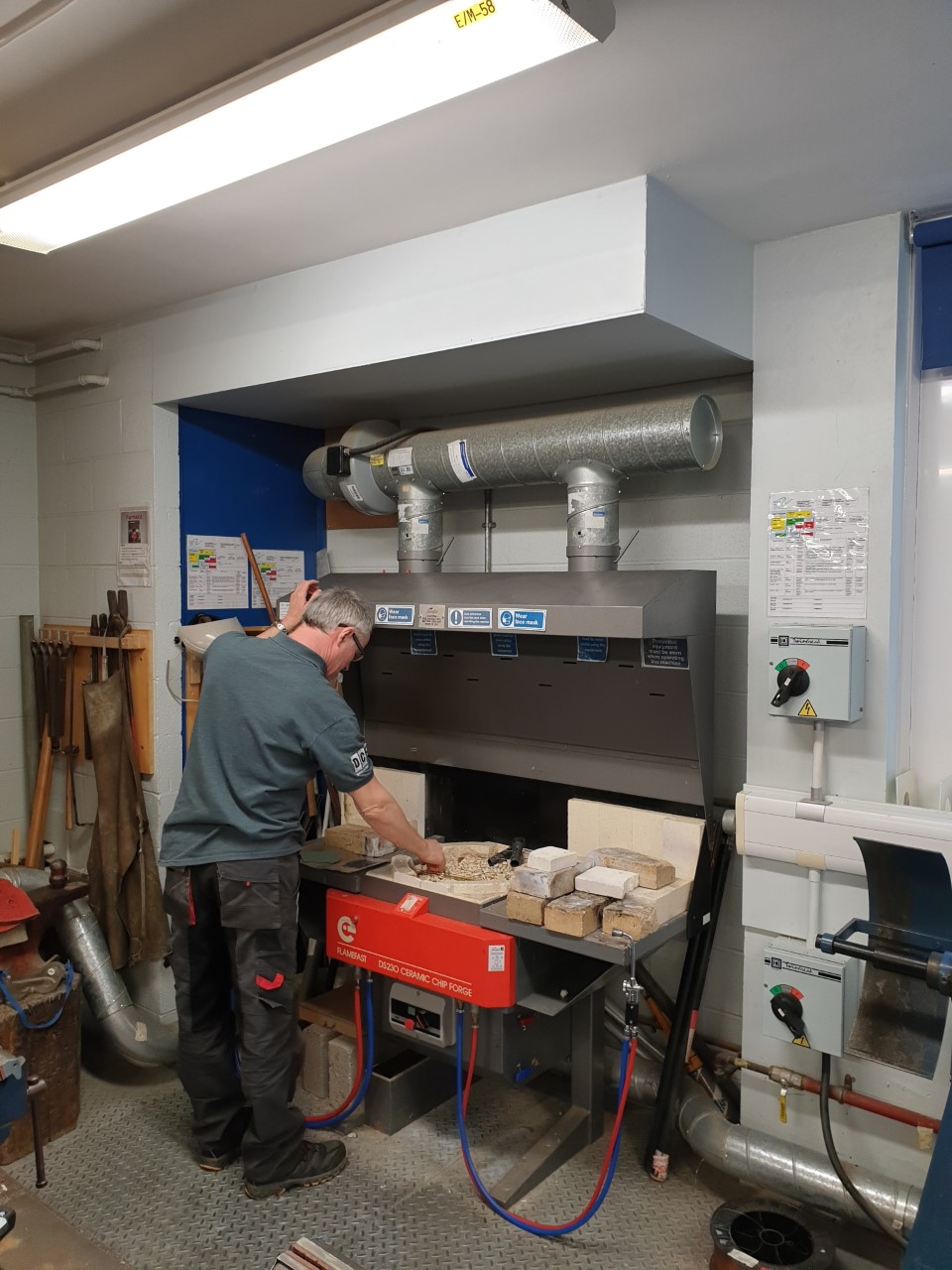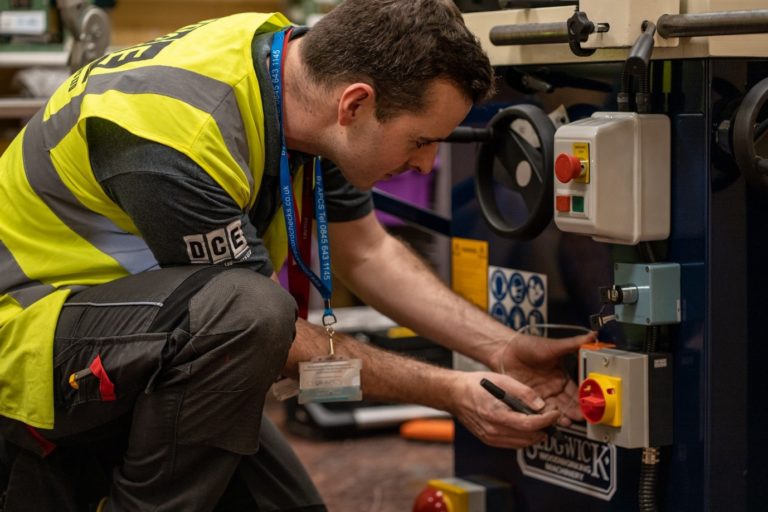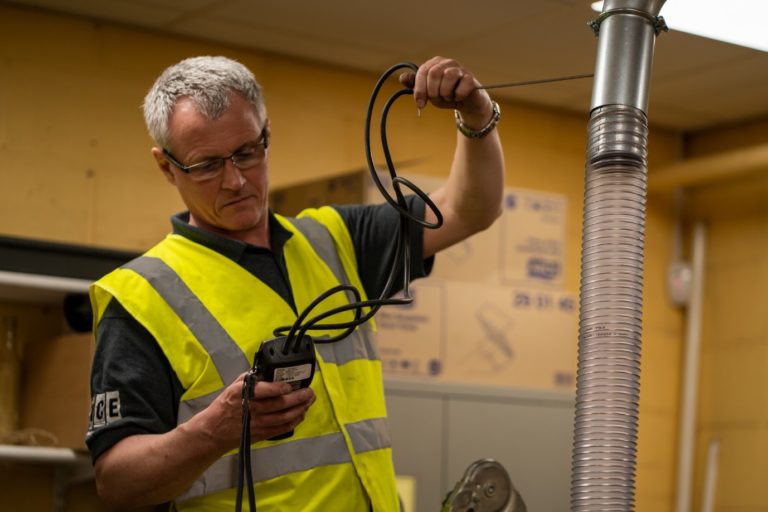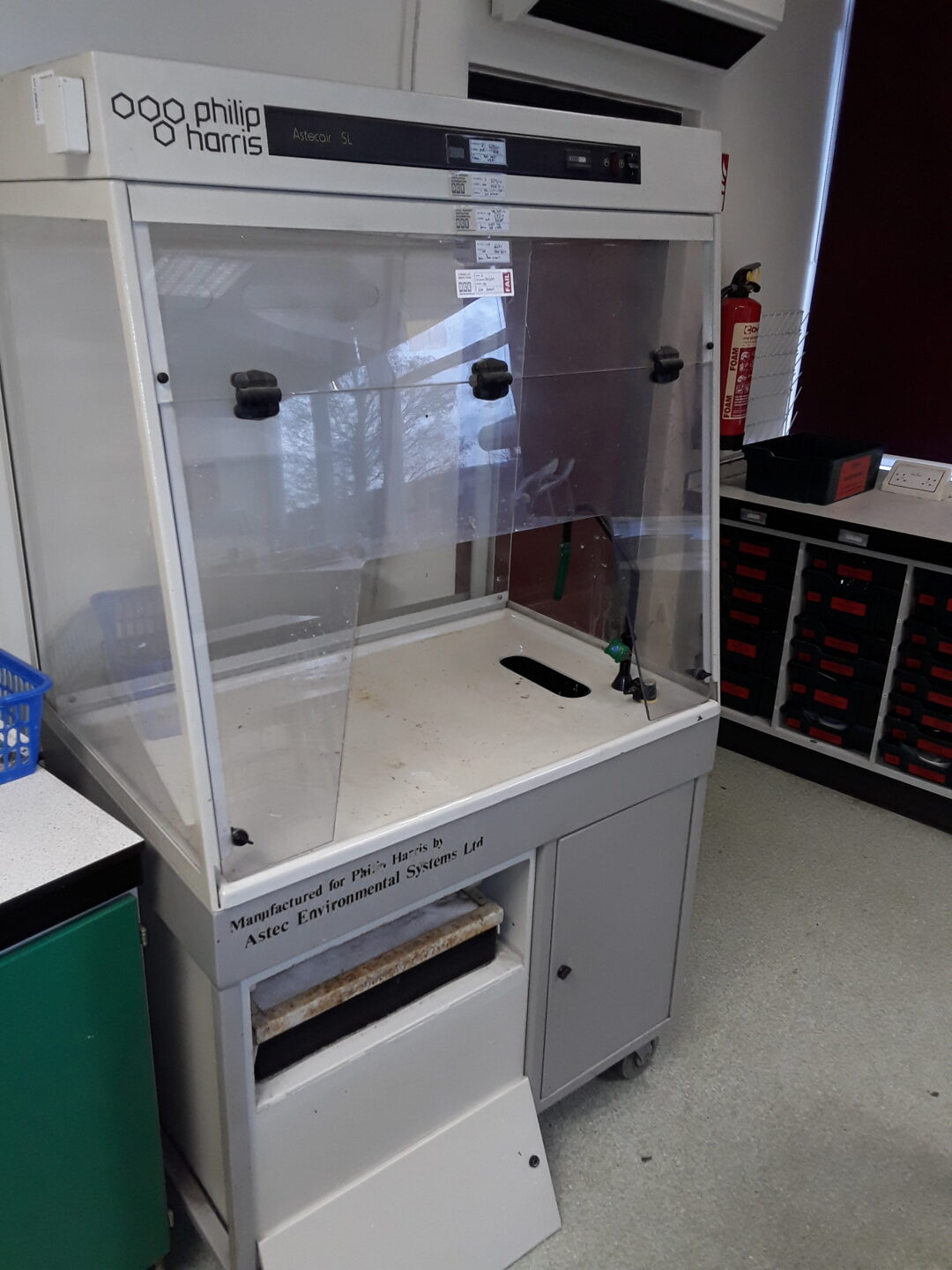LEV COSHH Testing
Your Local Exhaust Ventilation (LEV) system is fundamental to student and teacher safety. It helps ensure that the air in your school’s DT workshops and science rooms are free of dust, fumes and other contaminants. But your LEV can only keep your air clean if it’s performing optimally – and that means it needs to be tested regularly.
Regular testing isn’t just a key to protecting your students and staff – it’s also a legal requirement. The Control of Substances Harmful to Health (COSHH) regulations require you to perform an in-depth and fully compliant test on your LEV system every 14 months.
By choosing DCE for your LEV testing, you’ll have the peace of mind that your staff and students are fully protected. Our technicians provide a fully certified LEV testing service alongside any remedial works to ensure you stay compliant.
Contact Us
"*" indicates required fields
What is COSHH?
The Control of Substances Harmful to Health (COSHH) regulations set out the legal standards that all employers must meet when managing hazardous substances. In an educational setting, this is a significant concern for science, art and DT spaces. Many of the learning activities in these spaces generate substances that can threaten the health of your staff and students, including dust and fumes.
Your LEV system helps ensure these substances are extracted efficiently before they can cause harm – but only if it’s working properly. If your school’s LEV system has any undetected issues, you may not be compliant with COSHH without even knowing it. This could not only prove harmful for students and staff, but also lead to significant fines and legal repercussions.

Effective and Reliable LEV COSHH Testing

To ensure you’re providing a safe educational environment and staying fully compliant with COSHH, it’s essential that you have your LEV system tested by an experienced and accredited professional at least every 14 months.
Here at DCE, our team of specialists are fully trained and qualified to test LEV systems across a range of educational environments, including fume and dust extractors for DT workshops and fume cupboards in science rooms. We provide detailed reports to document your compliance and provide any necessary repairs, so you can focus on delivering a quality learning experience.
Our LEV COSHH Testing Process
Initial Enquiry and Scheduling. From your initial call, we work to schedule our LEV testing at a time that fits your needs and that ensures you’ll meet COSHH requirements.
Arrival on site. Our technicians arrive on site in full uniform and ID badges to ensure they are easily recognisable.
Full Testing Process. We deliver an in-depth, comprehensive and COSHH-compliant LEV testing process to ensure your extraction system is working optimally.
Remedial Work and Reporting. We provide a quotation for any work needed to get your LEV system working properly alongside a full report on the testing process.

DT workshop Dust and Fume Extraction Testing
DT workshops pose a number of hazards when it comes to protecting students and staff from harmful substances. From dust generated by woodworking to welding fumes from heat bay areas, there are a range of threats that need to be managed to stay compliant with COSHH.
By working with DCE, you can rest assured your workshop LEV system is in top condition. Our specialist technicians can test LEV systems of all sizes, from small mobile extractors to large multi-branch systems spanning multiple rooms.
LEV Testing Services for Science Room Fume Cupboards
Fume cupboards are critical safety equipment in science rooms, removing hazardous fumes and vapours generated during experiments. It’s essential that your fume cupboard has an effective LEV system to remove any hazardous substances and keep your learning environment safe.
At DCE, we specialise in performing detailed, COSHH-compliant LEV testing for science room fume cupboards. This includes both quantitative and qualitative testing and a detailed report to summarise our findings.

Discount on multiple services
Working with multiple service providers can lead to substantial challenges, from managing conflicting schedules to navigating unexpected delays.
Why not avoid the hassle and choose DCE for all your DT and commercial kitchen needs?
And it won’t just be a smoother and more efficient process – it’ll be cheaper, too! At DCE, we can offer a discount if you hire us for multiple different services.
Frequently Asked Questions
How often does LEV COSHH testing need to be carried out?
The COSHH regulations specify that your LEV system must be tested every 14 months in order to ensure compliance. However, it is preferable to schedule your LEV testing annually, as this ensures you have two months in which any necessary repairs can be completed.
If you choose to work with DCE for your LEV testing, we can contact you proactively each time an inspection is due, simplifying the process and making compliance easier. If any repairs are needed in order to meet the regulatory requirements, we can provide a quote for these immediately and schedule them to fit your needs
Do you provide detailed reports after LEV COSHH testing?
Yes, we provide in-depth reports as standard following LEV testing, as we do for all our DT maintenance services. This report demonstrates the work that has been done and gives you peace of mind that your system has been thoroughly tested and evaluated against all the relevant regulations, including COSHH and HSG258.
What types of LEV systems do you test in schools?
We can provide testing for a full range of LEV systems in schools, including dust and fume extractors for DT rooms as well as for science room fume cupboards. Our experienced technicians can tackle even the largest and most complex multi-room extractor systems, so you can rest assured you’ll be getting a comprehensive and fully compliant LEV testing service no matter the scale of your school’s needs.
What does an LEV COSHH test involve?
A LEV testing process that is fully COSHH compliant is complex and in-depth. Here at DCE, for example, our approach includes:
- Checking the system for blockages or damage including emptying any dust collection trays if necessary.
- Performing quantitative and qualitative testing to measure various aspects of your LEV performance, including duct and hood velocity.
- Evaluating results and providing a full report to indicate whether your LEV system is operating effectively or if any remedial works are needed.
Given the complex requirements of COSHH compliance – as well as the potential legal and health risks of failing to meet them – it’s vital that you work with experienced professionals who can deliver a comprehensive testing service.
Can you help with remedial work if LEV testing identifies issues?
Yes, our experienced technicians can deliver any work needed to get your LEV system back in top working condition if it isn’t performing optimally during the testing process. We include quotations for remedial works as part of our LEV testing process, so you can simply review our recommendations and schedule the work to suit your needs.
What is HSG258?
HSG258 is a key regulation when using Local Exhaust Ventilation (LEV) systems to control dust, fumes, and other hazardous substances. This document from the Health and Safety Executive (HSE) provides detailed guidelines on how to ensure your LEVs in DT workshops, science rooms, and other areas are designed correctly, well-maintained, and regularly tested to keep students and staff safe. At DCE, all our technicians have a detailed knowledge of HSG258 and can assess your LEV’s compliance as part of our testing process.